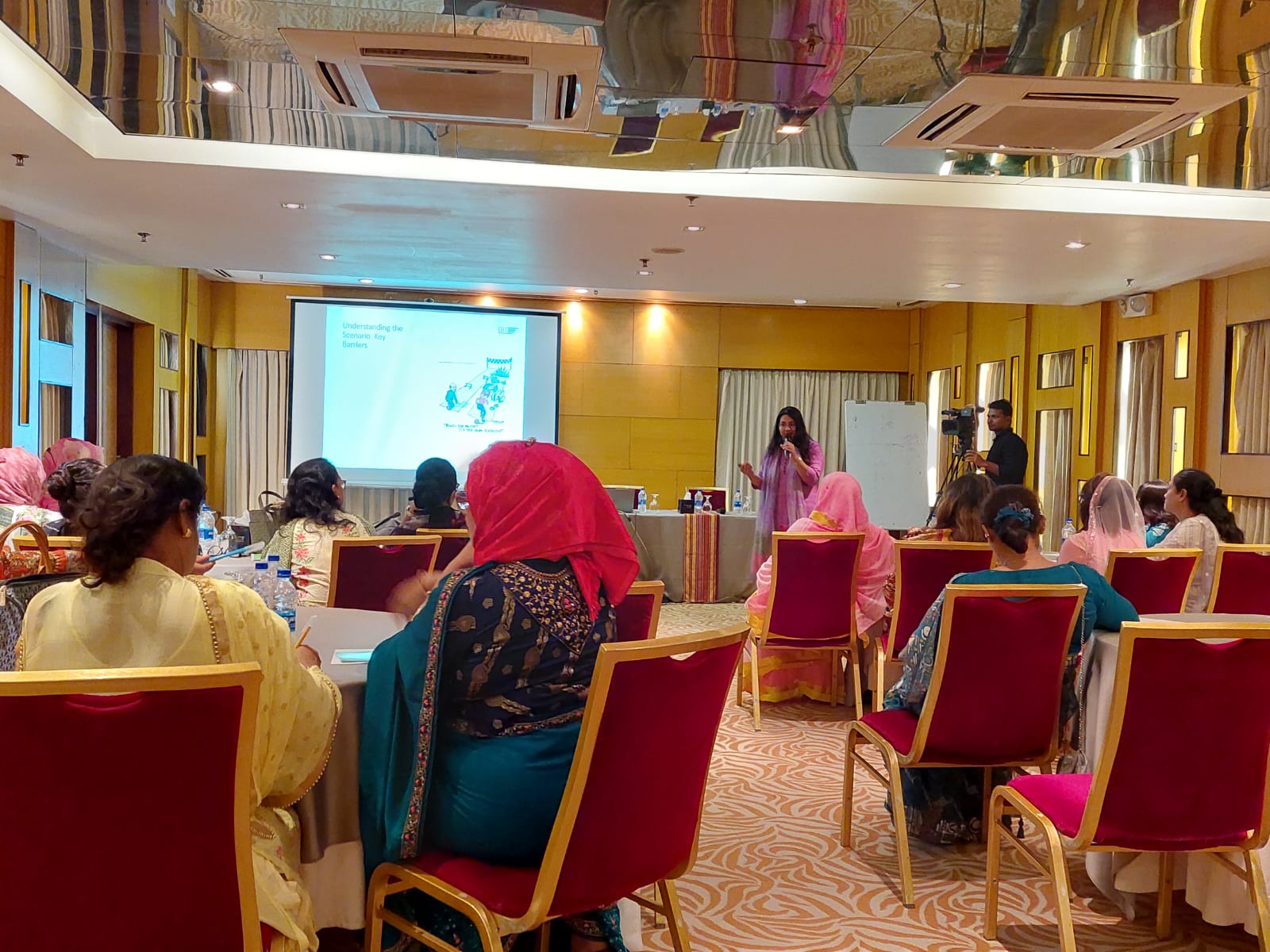
In the rapidly evolving landscape of global politics, harnessing the power of digital technology has become paramount. With Bangladesh’s election due by January 2024, the confluence of technology, women’s leadership, and cybersecurity is taking center stage.
To build the capacity of women political leaders in the digital space for the upcoming election, IRI conducted three intraparty workshops, funded by the United States Agency for International Development (USAID), on virtual campaigning with the women party leaders from the ruling Awami League (AL) and the opposition Bangladesh Nationalist Party (BNP).
In a unique collaboration in Bangladesh, IRI staff joined Meta experts to lead the workshops with 49 prominent women political leaders, including a dozen current members of parliament along with former members of parliament (MPs), central committee members, and other prominent figures within the AL and BNP. The workshops focused on the benefits and risks of the online political space.
The primary upside for politicians of online platforms like Facebook is that they provide new methods to reach voters. The training focused on strategies to fully leverage Facebook’s apps and capabilities to maximize outreach during election campaigns. For example, political leaders can utilize Facebook Live, posts, reels, and pictures to engage with a large audience.
In addition to the potential of the digital realm to foster meaningful connections with constituents, the training also addressed key vulnerabilities for women online, specifically cybercrimes and data privacy.
A recent report found that in 2017, 73% of female internet users in Bangladesh suffered a cybercrime and 70% of complainants to the Bangladeshi government’s Cyber Help Desk were women. The female training participants illuminated these statistics with stories from their lives.
During the workshop, a reserved-seat MP from the ruling party said, “Women in leadership positions like myself often face online harassment, cyberbullying, and even threats to our safety. These challenges can deter women from participating in politics and hinder our ability to serve our communities effectively.”
She argued political opponents use misinformation, hacking, and online smear campaigns, “as a tool to undermine our work and reputation. Instead of engaging in constructive debates and discussions.”
Similarly, a participant from the BNP said during the workshop, “Every other day, new videos on social media emerge to harass me and tarnish my character, including the circulation of explicit content. My family bears the burden of this pain, knowing that it comes with my commitment to politics.”
To address this pressing issue, trainers outlined Facebook’s safety and protection mechanisms and community standards. This information gave the participants knowledge and tools to make Facebook a safer space for their political activism.
Data privacy was another worry for workshop participants. These female leaders were concerned about governmental actors’ influence over Facebook’s community standards and data safeguards. They wanted to know their data is safe and whether political censorship could impact Facebook posts. In response, Meta trainers discussed the platform’s relationship with governments around the world and walked them through the best settings to protect their accounts.
All online platforms present inherent risks and expansive opportunities for politicians. In Bangladesh, where Facebook and other social media platforms are gaining widespread popularity, IRI’s workshop participants enjoyed the opportunity to expand their knowledge. A former opposition MP said, “This workshop is immensely valuable to us. We need detailed and practical trainings that allows us to get hands-on experience in boosting posts and enhancing cybersecurity.”
Digital campaigning will undoubtedly influence the upcoming election in Bangladesh. For women political leaders to safely compete, they must understand online political spaces’ power and peril.
IRI and Meta’s collaborative training helps to build the knowledge and capacity of women to contribute to a more inclusive, respectful, and informed political environment. As Bangladesh’s democracy enters the digital age, effective leaders will fuse technology, campaigning, governing, and constituent outreach. Bangladesh’s women leaders must be equipped with the skills and knowledge to compete in this new political landscape.
Top